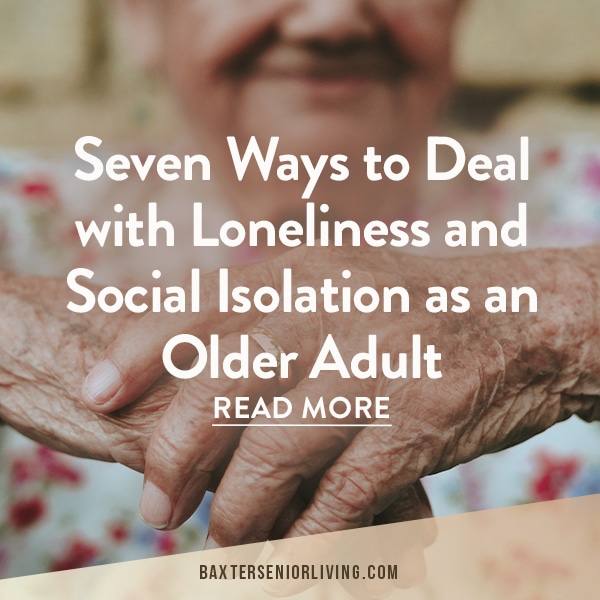People who are lonely and socially isolated are at risk for dementia and other medical conditions. Yet, according to a report by the US National Academies of Sciences, Engineering, and Medicine (NASEM), more than a third of people over 45 are lonely. And nearly a quarter of those aged 65 and over are socially isolated. The 2020 NASEM report is titled Social Isolation and Loneliness in Older Adults: Opportunities for the Health Care System.
Studies indicate that social isolation increases the risk of premature death, dementia, heart disease, and stroke. In addition, those who are socially isolated are more likely to suffer from anxiety and depression, and more likely to commit suicide.
Living alone, retiring from work, the death of family or friends, being widowed or divorced, and living far from family are some of the factors that lead to social isolation and loneliness. Lack of means to participate in social activities and chronic illness may also lead to loneliness and social isolation. All these conditions are found mostly among seniors. According to a study associated with McMaster University, Hamilton, Ontario, Canada, 20 percent of Canadians above the age of 65 feel lonely sometimes. The figure rises to 25 percent for those above 85.
As an older adult, you can ward off loneliness and isolation by doing the following:
Stay connected
As much as possible, stay connected to family and friends. If you live far from family, connect through the available technology. If you have no family, connect with friends in the community by volunteering in activities that give meaning to your life. Volunteer at your local library, religious community, or neighborhood center. You will meet people and make friends, and have something to look forward to.
Pick up or develop a hobby
Are you interested in gardening? Or is it sewing, knitting, crocheting, or quilting? Seek out other people with similar interests. You could start by searching the internet. However, you might be surprised to find groups that meet in your neighborhood. You could learn a new skill, like playing a musical instrument, or join your church choir. These activities keep you busy and in touch with people.
Engage your mind
Stay mentally engaged. Researchers at Stanford University, USA, have found that challenging mental activity can improve memory by 30 to 50 percent. Mental challenges keep your brain in shape and also strengthen your body’s ability to cope with disease. When indoors, engage your mind with reading, doing puzzles, and playing card or board games. Just don’t let your brain stay idle. You are then less likely to feel sorry for yourself.
Keep a pet
If you can look after a pet, consider adopting one. However, if looking after a pet is too daunting, contact a pet visitation center, if there’s one in your area. Pet visitation centers allow you to spend time with a pet without having to adopt one.
Look after your health
Eat a variety of vegetables and fruit every day. Eat green leafy vegetables, berries, and oily fish to protect your nervous system. Limit your sugar and alcohol intake and stop smoking.
Exercise to keep fit. Physical activity slows down bodily decline. Apart from warding off many diseases, exercise also eases stress and lifts your mood. Be as physically active as your body allows, but consult your doctor before you start any vigorous physical activities.
Reach out to others
Connect with others who are widowed or divorced, have retired, suffer from chronic illness, and so on. Your community center, local health facility, religious organization, and the internet can all provide you with information about such facilities in your area. Don’t hesitate to consult a mental health professional if you get to the point where you can’t handle the pressure.
Consider moving to a senior living facility
Depending on your situation, you might want to move into living quarters that cater specifically to seniors. These vary from country to country but include senior housing, senior independent living communities, and nursing homes. Others are assisted living, memory care homes, and hospice care. Living in a senior facility allows bonding with other seniors and support with tasks you may be struggling with. You could also continue to live in your own home but engage the services of a caregiver.
Bottom line
Don’t let your situation overwhelm you. Help is available. Reach out and build a social network that offers protection against loneliness and social isolation.

